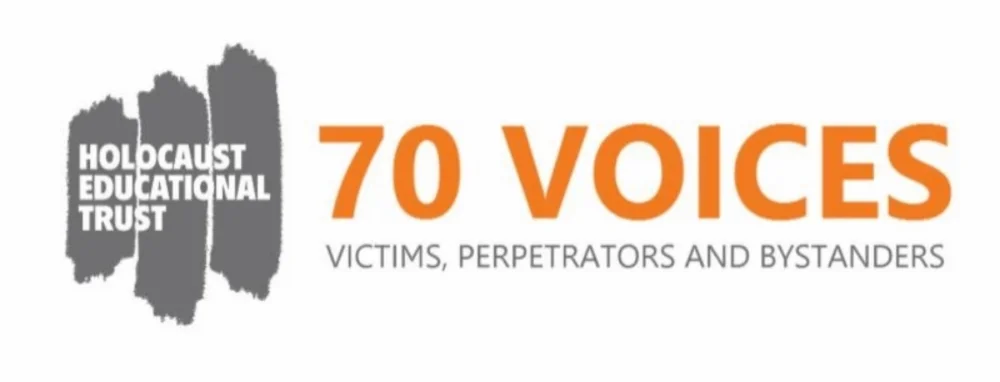The impact of the Holocaust did not end with the Second World War. Its legacies have continued to shape the modern world in multiple ways. One of the most obvious is the presence of Holocaust survivors who, with nowhere else to go, often settled in western societies, including the UK. Amongst them was Roman Halter, who was, like the boys in this photograph, one of a group of 732 young survivors – nicknamed the ‘Boys’ – who were admitted to Britain in 1945.
The group of us known as the ‘Boys’ came to England by plane from Prague airfield. We were loaded up and I saw this very tall officer who was talking from the side of his mouth, emitting these very quick sounds and I thought: I will never learn that language, it sounds to me like boiling potatoes. He had a pipe in the corner of his mouth and this moustache and spoke terribly fast, but he was very nice and asked his crew to take off their caps and put them on our heads, and we all felt like pilots. There was a tea reception, not a single slice of black bread, all beautifully white. We hadn’t seen that before. I thought: we have come to a country of milk and honey. And all these lovely ladies were there who fussed about and gave us bread with jam and honey. They all smiled at us and we thought we had landed on another planet.
A further 2,000 or so survivors were allowed to come to Britain in the years after the war because they had relatives in the country. They built new lives and families here and made immense contributions to British society. Many have chosen to share their testimony in schools, through the Holocaust Educational Trust’s Outreach programme, as a means of educating young people about the continuing relevance of the Holocaust.
Photo: child survivors eating after arrival at Windermere, 1945; Pictorial Press
Testimony: Lyn Smith (ed.), Forgotten Voices of the Holocaust (Ebury Press, 2006)

